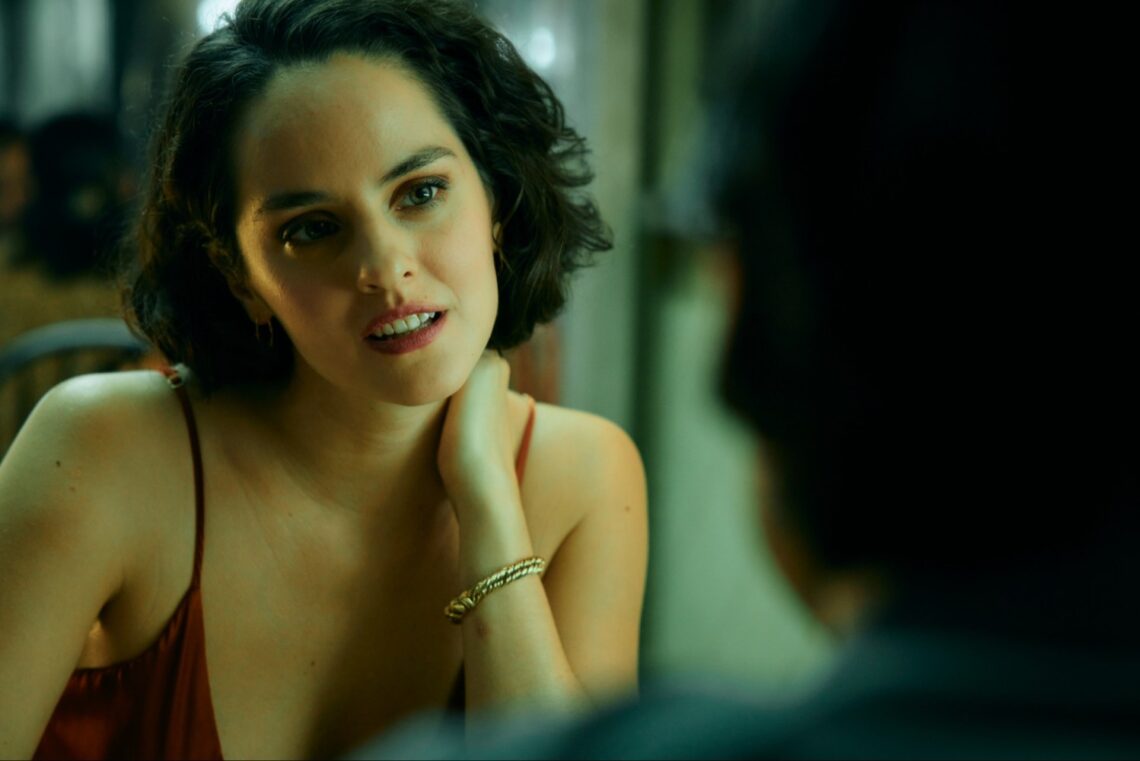Audrey Diwan’s ‘Emmanuelle’: A modern exploration of desire
A fresh take on a classic
Opening this year’s San Sebastian Film Festival, Audrey Diwan presents her latest film, Emmanuelle. This project follows her Golden Lion-winning film, “Happening,” and continues her exploration of sensorial experiences through literary adaptations. Diwan’s new film delves into the elusive quest for physical pleasure, a theme she approaches with a unique perspective.
Reviving sensations
Diwan describes the project as one of renewal, aiming to revive and share sensations with the audience. The film updates the 1967 novel by Emmanuelle Arsan, reimagining the protagonist, Emmanuelle (played by Noemie Merlant), as a leisure quality control inspector. She is sent to a luxury hotel in Hong Kong, managed by Naomi Watts and haunted by a mysterious guest portrayed by Will Sharpe.
The pursuit of pleasure
While the film centers on pleasure, it also highlights the frustration of unmet desires. Diwan emphasizes that the pursuit of pleasure should remain a mystery, exploring the subject from her perspective without offering universal answers. She believes that pleasure is a deeply personal experience, varying from one individual to another.
A personal journey
Diwan’s decision to take on this project was driven by her creative passion and fear. Initially hesitant, she found the source novel fascinating, particularly its in-depth exploration of desire. This led her to question whether eroticism could still serve as a relevant narrative engine and how themes from 1967 might resonate today.
The art of eroticism
For Diwan, eroticism is about the tension between what is seen and what is hidden. She believes that what remains concealed is often more intriguing. This approach asks the viewer to actively engage with the film, collaborating with the story. Diwan’s goal was to depict a woman who can no longer experience pleasure and her journey to recover it, paralleling her previous work on pain in “Happening.”
A contemporary perspective
Diwan’s version of Emmanuelle focuses on a 35-year-old professional woman, rather than a young ingénue. This shift allows her to explore different societal expectations and pressures. The film portrays a woman who must perform enjoyment and success, ultimately leading to exhaustion. Diwan and co-writer Rebecca Zlotowski imagined a process of letting go, opening a window, and taking a deep breath to shed these societal dictates.
The luxury hotel setting
The choice to set the film in a luxury hotel adds a layer of complexity. Diwan describes these hotels as dizzying places where everything is eternal and unchanging. This creates a seductive but sterile atmosphere, where chaos is rare and quickly smoothed over. Emmanuelle, as a quality control inspector, ensures that guests’ experiences are pleasurable, but she knows these experiences are artificial, part of a décor.
Comparisons to ‘The White Lotus’
The film’s setting and themes draw comparisons to The White Lotus, which also explores appearances and individuality. Diwan acknowledges this similarity, noting that the hotel environment creates social distance and a distinction between the public self and private experiences. The hotel promises something exotic but ultimately fails to engage with the world.
Intimate scenes and onanistic expression
Many of the film’s intimate scenes feature Emmanuelle alone, reflecting an empty relationship with the world. Diwan wanted to explore how artificial pleasure can feel stifling, highlighting the desire to escape and breathe after feeling confined. The film is not a direct feminist revision but rather an exploration of female pleasure without overturning previous codes.
The challenge of representing pleasure
Diwan and Merlant faced the challenge of representing the female orgasm authentically. They sought to move away from previous representations, aiming for something that felt true. The process was exhausting, with numerous takes, but ultimately led to a moment of inspiration and authenticity.
Collaboration with actors
Working with actors who also direct, like Noemie Merlant and Will Sharpe, brought a unique dynamic to the set. Both actors intuitively understood the framing and shared their perspectives with Diwan. Merlant’s background as a model and her interest in the subject allowed her to portray the body with freedom and authenticity. Sharpe, with his Anglo-Japanese heritage, brought thoughtful representation to his role.
Final thoughts
Diwan’s Emmanuelle is a nuanced exploration of desire, pleasure, and societal expectations. By focusing on a contemporary professional woman and setting the film in a luxury hotel, Diwan creates a rich, layered narrative that invites viewers to engage with the story actively. The film’s intimate scenes, collaboration with talented actors, and thoughtful representation make it a compelling addition to Diwan’s body of work.

 Italian
Italian






